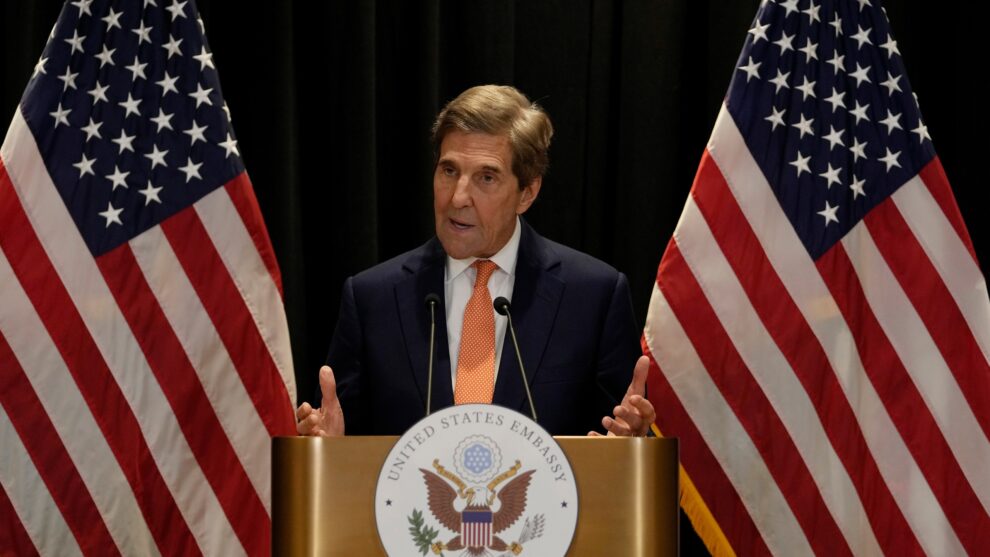Amid unusual summer heat, John Kerry, U.S. special presidential envoy for climate, landed in Beijing on Sunday.
The visit comes at a critical moment. The globe is heating up. Beijing’s alert for high temperatures is no exception, as the whole world saw its hottest days on record last week. Reversing climate change hardly brooks any delay.
China and the United States, as the world’s top two economies, bear the common responsibility for driving forward global climate actions that can cool down the sizzling Earth.
At the same time, the U.S. climate envoy is also expected to help calm the inflamed tensions between the two countries, following the efforts of Secretary of State Anthony Blinken and Treasury Secretary Janet Yellen, who paid visits to Beijing over the past month.
These interactions are a good sign for preventing further miscalculations, and steering bilateral relations back on track.
Both sides are anticipating practical outcomes and meaningful actions. To achieve those, both must show their sincerity for genuine cooperation, otherwise any promises for progress on relations are just empty talk.
It is especially true for the White House to bear in mind that seeking to compartmentalize cooperation with — or competition and suppression against — China in bilateral ties is simply unrealistic in practice and unacceptable for Beijing.
For China-U.S. cooperation to be healthy and sustainable, bilateral ties must be treated as a whole.
Climate cooperation is deemed as an important component in China-U.S. exchanges. The synergy between these two countries once gave a huge push to the historic Paris accord, and paved the way for wider breakthroughs in global carbon emission reduction, which proves that progress can be made when the two countries try to meet halfway, even when bilateral relations encounter severe setbacks.
Secretary Yellen has embraced the Chinese view that the world is big enough for both countries to thrive. While extreme heatwave is baking this planet, the world is also hot enough for Beijing and Washington to act together for the sake of human existence.
Kerry’s trip offers a chance for the two sides to build up more consensus for cooperation to lower the heat for the highly-charged bilateral ties and a warming-up planet.
However, prior to his visit, some media outlets reported that the White House is working to roll out new restrictions on American investments in China. If that is the case, those actions would certainly not help cool down tensions in China-U.S. ties, but push them up. The progress made recently by the two sides to stabilize their ties will also be affected.
To see a substantial change in the overall climate of China-U.S. ties, both sides need to make their due efforts to build trust and goodwill.










